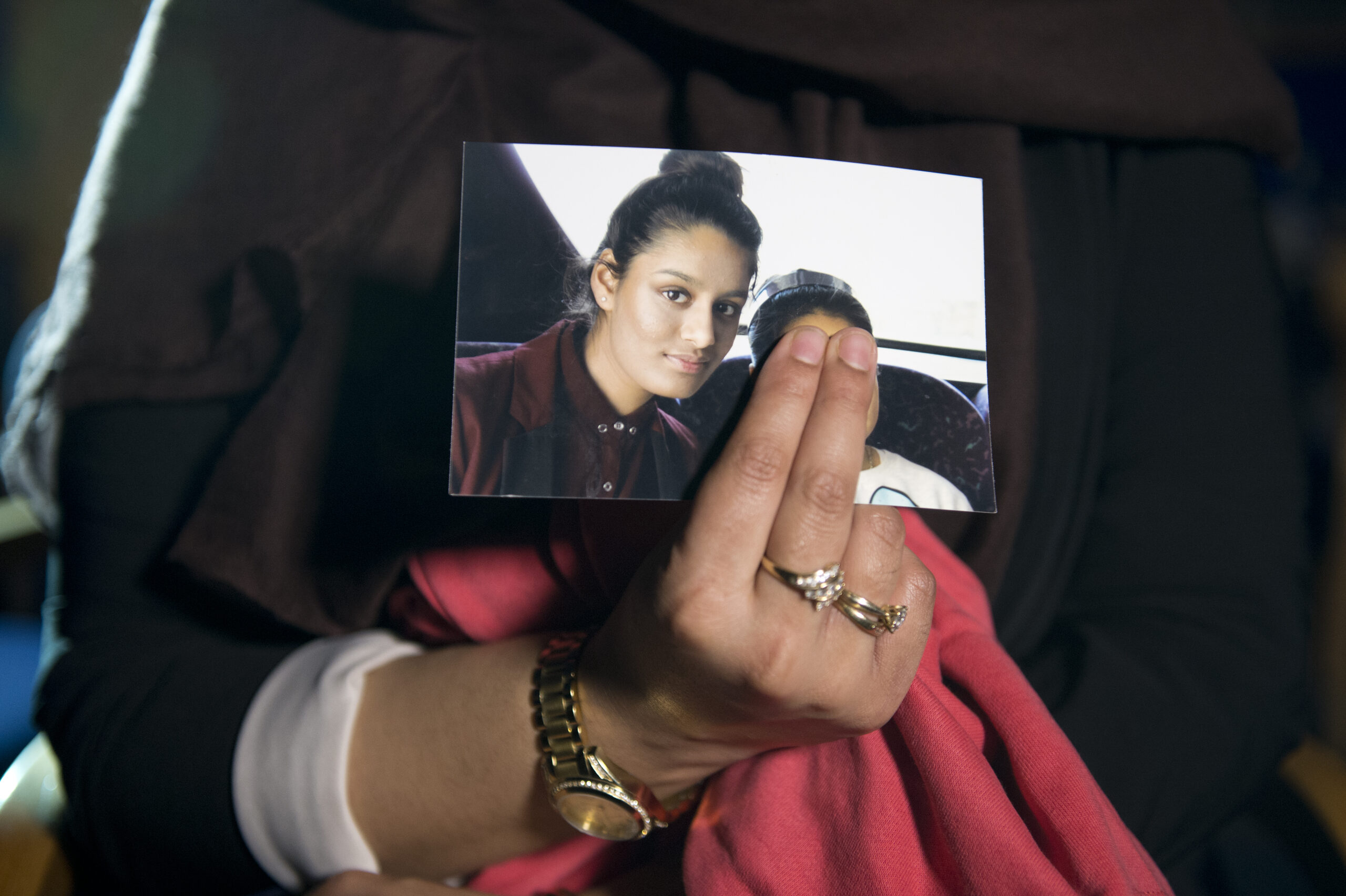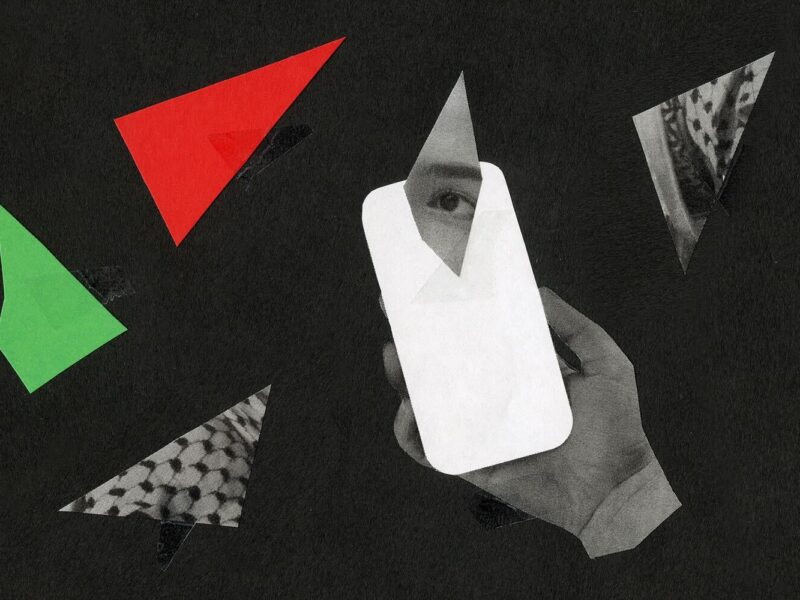The most compelling argument for repatriating British citizen Shamima Begum, who sneaked into Syria and joined the Islamic State when she was 15, is based not on emotion but on cold, hard logic.
On February 19 the British home secretary announced that he had decided to revoke the citizenship of 19 year-old Shamima Begum, the London-born daughter of immigrants from Bangladesh. Begum sneaked out of Britain and infiltrated Syria to join the Islamic State when she was 15 years old, becoming one of its most notorious promoters on social media platforms. Now, with the ISIS routed from nearly all its territory in Syria, Begum is detained in a Kurdish-controlled detention camp. In interviews with British media outlets, the teenage ISIS bride, who recently gave birth to her third child (the first two died), asked to be allowed to return to the UK.
Begum’s request set off a storm of controversy, with those who opposed her repatriation pointing to her lack of contrition for having supported notorious terror attacks like the 2017 Manchester Arena bombing. Those who favor bringing the young woman back to Britain point to international law, which prohibits rendering a person stateless. While Begum’s parents are Bangladeshi, she is not a citizen of the South Asian country; the government of Bangladesh has said that it would not be willing to take her in.
Other arguments in support of her repatriation include the fact that her child is a UK citizen, and revoking the citizenship of one person for engaging in politically unacceptable activity sets a dangerous precedent.
My argument is based neither on international law nor on sympathy for Begum’s innocent child, but rather on cold logic. The fact is that the British government, with its decision to strip Shamima Begum of her citizenship, is playing directly into the hands of ISIS. It is implementing the Islamic State’s own policy — thereby strengthening jihadi recruiting methods.
The Begum case pours salt into one of the gaping wounds of the postcolonial condition: as in the case of other ISIS brides, the British government’s decision to revoke Shamima Begum’s citizenship makes her “someone else’s problem now.” She has been cast aside, a move justified by pointing to her ancestral roots in another nation-state (which happens to be a former British colony) — where she is not even a citizen. To British Muslims, their government’s message is very clear: “you will never really be British.”
But the fundamental problem with stripping citizenship from ISIS returnees is far more worrying and destructive than having made Muslims feel that they will never belong in the so-called West. The real consequence of the British home secretary’s announcement is that is doing the work of the Islamic State by stepping right into its propaganda trap.
The difference between compassion and understanding
Shamima Begum’s case elicits heated emotions and divisive debates. People who say they are trying to “understand” the teenager’s motives, or who call for compassion to be shown toward her, provoke reflexive and performative expressions of horror and, often, the accusation that they are soft on ISIS.
Propaganda succeeds when it provokes emotional responses that override one’s willingness or ability to respond with logic and reason — rather than reacting emotionally. And that is the ISIS trap.
I understand well the temptation to give in to one’s emotions: Steven Sotloff, the American journalist who was killed in Syria by ISIS in 2014, was a close friend.
The way to lose a war is by dehumanizing your enemy. When your enemy appears wholly irrational and monstrous, the idea of trying to “understand” her ostensibly renders one guilty of “sympathizing.” But it is impossible to defeat an opponent whom you do not understand — because you will never see them coming.
ISIS 101: Citizenship, gender, and civilians in the caliphate
If Shamima Begum joined a terrorist group, does that make her a terrorist? The question is a valid one, albeit controversial. There is a difference between offering support and actively carrying a weapon for a terrorist group. The jihadi brides are accused of providing support by disseminating pro-ISIS propaganda on social media platforms.
But while the regime of Syria’s President Bashar al-Assad has killed far more civilians than ISIS could ever aspire to, one very rarely hears calls to revoke the British passport of Asma al-Assad, the London-born wife of the Syrian dictator. And yet, Asma al-Assad frequently and vehemently expresses her uncritical support for her husband’s regime and its army, both on social media and in television appearances that are broadcast all over the world.
Note, too, that men who were recruited to become fighters with ISIS were later repatriated to their home countries with only a fraction of the media attention paid to Shamima Begum’s request return to her native England. If we fail to grasp that the case of Shamima Begum is complex, then we simply do not understand ISIS.
The first two letters of the acronym ISIS stand for Islamic State. The caliphate aspires to establish a state, and states need civilian settlers, not just an army. They need a nation of citizens to govern, which requires civilians — including women and children — who have chosen the caliphate over the contemporary nation-state.
That is why when men who are new recruits to the Islamic State’s fighting force arrive in IS-held territory, they are compelled to burn their passports in a ritual act that is recorded. ISIS propagandists disseminate the videos of those passport burning ceremonies online, where they are shared widely, with the intended impact of severing from those new recruits the possibility of returning home. Women who join the Islamic State as jihadi brides are also compelled to burn their passports.
Why, then, is the public far less outraged about male jihadi fighters having been repatriated to their home countries than they are about women who joined the Islamic State and now want to return home? The answer is that when young women like 19 year-old Shamima Begum join the jihadis to become their brides, and praise them for carrying out beheadings or terror attacks on European soil, they contradict a very commonly held orientalist stereotype about oppressed Muslim women who lack agency. Note well that much of the controversy over Shamima Begum has been over her apparent lack of contrition. There is an unsettling contrast between her shapeless traditional black robe and hijab, which many interpret as a symbol of oppression, and the assertive manner in which she expresses pro-ISIS opinions.
The fastest and most efficient way to lose a war is to underestimate your opponent. If you believe they are irrational and incapable of strategizing, then you are underestimating them. The key to winning the war is to understand the enemy. Critical here is an overlooked feature of ISIS propaganda — the organization tailors messaging with particular audience demographics in mind. ISIS purposely represents themselves as monstrous and irrational, because that image plays into our fears and stereotypes. They weaponize orientalist stereotypes against us — and we fall for it, every time..
Remember that ISIS sees itself as a state, which means it must attract civilians, including women, as well as male fighters. The vast majority of ISIS propaganda is, to the surprise of many, not violent. Instead, it employs utopian images of a sustainable state and nation—where civilians can live in safety and security in a welcoming, multi-racial, autonomous and sovereign state. Shamima Begum was recruited online from her London home, when she was only 15 years old, because she saw those propaganda videos of a land where — in contrast to Saudi Arabia — women could drive, and were promised comfortable lives as the wives of fighters, but not as fighters themselves. Of course we can find Begum’s decision to join ISIS abhorrent, and her gullibility for the group’s propaganda absurd. But remember: we are falling for ISIS propaganda too — just different propaganda, which targets a different audience.
Neurology, violence, and trauma: The making of child soldiers
Public outcry over Shamima Begum has largely focused on her failure to express remorse. Fundamental to both the ISIS state-making project, and the production of child soldiers is the role of neurological development before the age of twenty-five. Begum joined the IS when she was 15 years old. Much like the ISIS youth group, Cubs of the Caliphate, Begum has witnessed — and perhaps committed — acts of grotesque violence and morally abhorrent trauma at an age well before the brain develops its capacity to exert full agency, to cope with trauma, or to deal with the consequences of one’s actions.
The leaders of the ISIS youth groups deliberately traumatize children when they are very young, as a means of ensuring that their psychological scars make their reentry to their home society nearly impossible. In their graduation ceremony from ISIS youth groups, children are forced to commit an act of murder. This same method was used to recruit child soldiers in Sierra Leone and Côte d’Ivoire.
Once children have been forced to witness or participate in morally injurious acts like murder, the psychological scars are profound. The guilt and self-hatred can prove irreversible without considerable assistance—one reason, among others, that the reintegration of child soldiers proves a challenge across global conflict zones. Worse, these underage returnees are well aware that society views them as monsters — damaged beyond recognition. And so they are inculcated with the idea that there is no going back home, because “home” no longer exists.
Successful counterterrorism tactics
Shamima Begum needs help — if for no other reason than the biological reality of her age means that her neurological ability to reason is limited. There is also the concern that she has witnessed extensive trauma that she is — again, for neurological reasons — unable to process. This is not an appeal to set her free, nor a suggestion that she face no consequences for her actions. One can understand why she behaved as she did, without condoning her actions.
The fact is that we, the people who want to defeat ISIS, need Shamima Begum. Repatriated former members of the Islamic State are the best weapon we have in the war against jihadism. They are, in fact, the only credible messengers. By repatriating them, we slay the jihadi propaganda claim that the so-called West not only doesn’t care about its Muslim citizens, or that it commits human rights abuses far worse than those of the caliphate’s fighters. By bringing Shamima Begum home to Britain, we give lie to the ISIS claim that once recruits join the Islamic State, they can never go home again — that their governments will disown them, because they do not care about or want their Muslim citizens.
What next
Successful counterterrorism strategy is not driven by public emotion or political expediency. The politicians who chose to take the populist route in revoking Shamima Begum’s citizenship capitulated in the face of a frightened electorate. In doing so, they fell straight into the trap set by ISIS. They confirmed what jihadi propaganda videos preach to followers and to potential new recruits: that their home countries are led by non-believers who don’t care about them or want them, and that they are thus better off in the caliphate than in suburban London (or Paris, or Brussels, or Toronto).
I am not calling for peace, love, and understanding for ISIS, but precisely the opposite: an emphatic reminder that cold, hard logic makes for successful policy. The purpose of ISIS propaganda is to undermine our ability to engage in logical thought by blinding us with hate-filled emotion. In the case of Shamima Begum, the British government handed ISIS their victory — because a public frightened by beheading videos votes on emotion. Politicians win elections not on strategy that is born of detached logic, but on the calculus of political expediency.
Fear-inducing propaganda is extremely effective — until it isn’t. But rather than wait to see if something worse comes after propaganda stops working, let’s take some preemptive, logical action. Let’s show vulnerable teenagers who spend far too much time online that ISIS propaganda is a lie.



